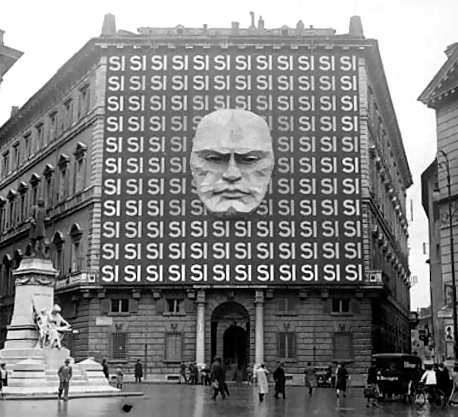This is the third excerpt from a research chapter examining the intellectual strands that combined to form the basis of National Socialism. National Socialism (Nazism) emerged in a particular context, both in terms of material causes, but also - and in an often underexplored way - intellectual causes. The essay attempts, therefore, to explain how the intellectual sources of Nazism emerged and were, in places, perverted to justify the Nazi regime: first, the intellectual framework of Michael Freeden’s morphological approach to ideology is explained; subsequently, the components of Nazism are established, specifically: Nietzschean philosophy; Schmitt’s concept of the political; the ideology of fascism; and the emergence of Teutomania.
Section Three - The Synthesising role of Fascism
In this section, I shall examine fascism as a synthesising concept that reconciles the concepts I have identified in the two previous sections of the interpretation: the ‘new man’ that the Overhuman theory propagates; and the friction between Nietzschean individualism and Schmittian collectivism; and how the synthesising process narrowed the polysemy of ‘struggle’. Finally, I shall explain my comments in the Introduction regarding fascism as a ‘nationalist socialism’ in the literal sense.
Briefly, it is here that Michael Freeden’s post-structuralist language becomes useful. Freeden considers all political concepts in the morphological sense, as subject to inter-definitional practice by associating concepts with one another. This is because “words have indeterminate, rather than intrinsic meanings; that they are social constructs whose meaning is determined by their usage (1998: 61). Though Freeden is principally concerned with political ideologies, his consideration of the political usage of concepts – as National Socialism uses the Overhuman concept – is that concepts “have components that are ineliminable not in a logical sense, but simply in the sense that an empirically ascertainable cultural commonality ascribes to them some minimal element or elements” (Ibid: 63). As we shall see below, this is significant for the interpretive role fascism plays in narrowing the polysemy of concepts by associating the ineliminable components of concepts.
Roger Eatwell places in “the heart of fascist ideology” the core theme of “the ‘new man’” which was to be determined in the process of “palingenesis” identified by Roger Griffin as “a revolutionary alternative form of modernity, whose mythical goal was the rebirth/palingenesis of the nation after a period of decadence” (2013: 475, 479-480). Here is an allusion to the Nietzschean concept of the Overhuman as an individual driven by the will to power to achieve the “state of higher being”, though in a national context. We shall turn to the application of the will to power to the nation below, but first it is important to stress the significance, and definition, of struggle in the will to power in the self-creative process.
Keep reading with a 7-day free trial
Subscribe to Rookery Review to keep reading this post and get 7 days of free access to the full post archives.


